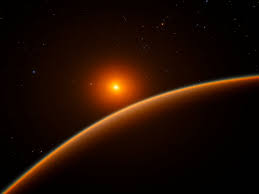 NASA confirmed this week that it had detected a newcomer to our solar system. The visitor takes the form of a small space rock and has been referred using the code name A/2017 U1. NASA further said that the new body is only a quarter mile long. This has resulted in a race among earth astronomers to learn more about the object before it disappears. They fear that it’s likely to disappear as quickly as it appeared. University of Hawaii Institute for Astronomy astronomer Rob Weryk confirmed that they had never seen something of that nature. The astronomer confirmed that he discovered the object in the images that had been taken by one of the university’s telescopes that is located in Maui Island. He further said that he discovered this on 19th October. He said that he first dismissed the object as a near earth object that was a common phenomenon in these images. However, after reviewing the images again, the astronomer says that he realized that the motion of this object didn’t make sense. He says that he realized that the object was travelling at a higher speed compared to a comet or an asteroid. After further consultation, they concluded that the body was not from this solar system.
NASA confirmed this week that it had detected a newcomer to our solar system. The visitor takes the form of a small space rock and has been referred using the code name A/2017 U1. NASA further said that the new body is only a quarter mile long. This has resulted in a race among earth astronomers to learn more about the object before it disappears. They fear that it’s likely to disappear as quickly as it appeared. University of Hawaii Institute for Astronomy astronomer Rob Weryk confirmed that they had never seen something of that nature. The astronomer confirmed that he discovered the object in the images that had been taken by one of the university’s telescopes that is located in Maui Island. He further said that he discovered this on 19th October. He said that he first dismissed the object as a near earth object that was a common phenomenon in these images. However, after reviewing the images again, the astronomer says that he realized that the motion of this object didn’t make sense. He says that he realized that the object was travelling at a higher speed compared to a comet or an asteroid. After further consultation, they concluded that the body was not from this solar system.
The astronomer noted that the object is moving so fast such that it cannot be kept into orbit by the sun. When he could not make more progress on his own, the professor decided to seek help from a colleague who worked at the European Space Agency. This resulted to the object being submitted to the Minor Planet Center. For starters, this is a center that is responsible for sharing information with other astronomers about objects that are currently being studied. A NASA engineer currently working at the Center for Near-Earth Objects Studies that is located at the Jet Propulsion Laboratory says that he had never thought of seeing such a phenomena in his career. The engineer is known as Davide Farnocchia. Jet Propulsion Lab is located in Pasadena, California. While astronomers have always spoken about such a phenomena, this is the first time that it has happened. According to the scientists who have studied the object, they have concluded that the object is travelling in a hyperbolic orbit. This means that the object is travelling in an open-ended trajectory, unlike the elliptical orbits that are common in the solar system.





